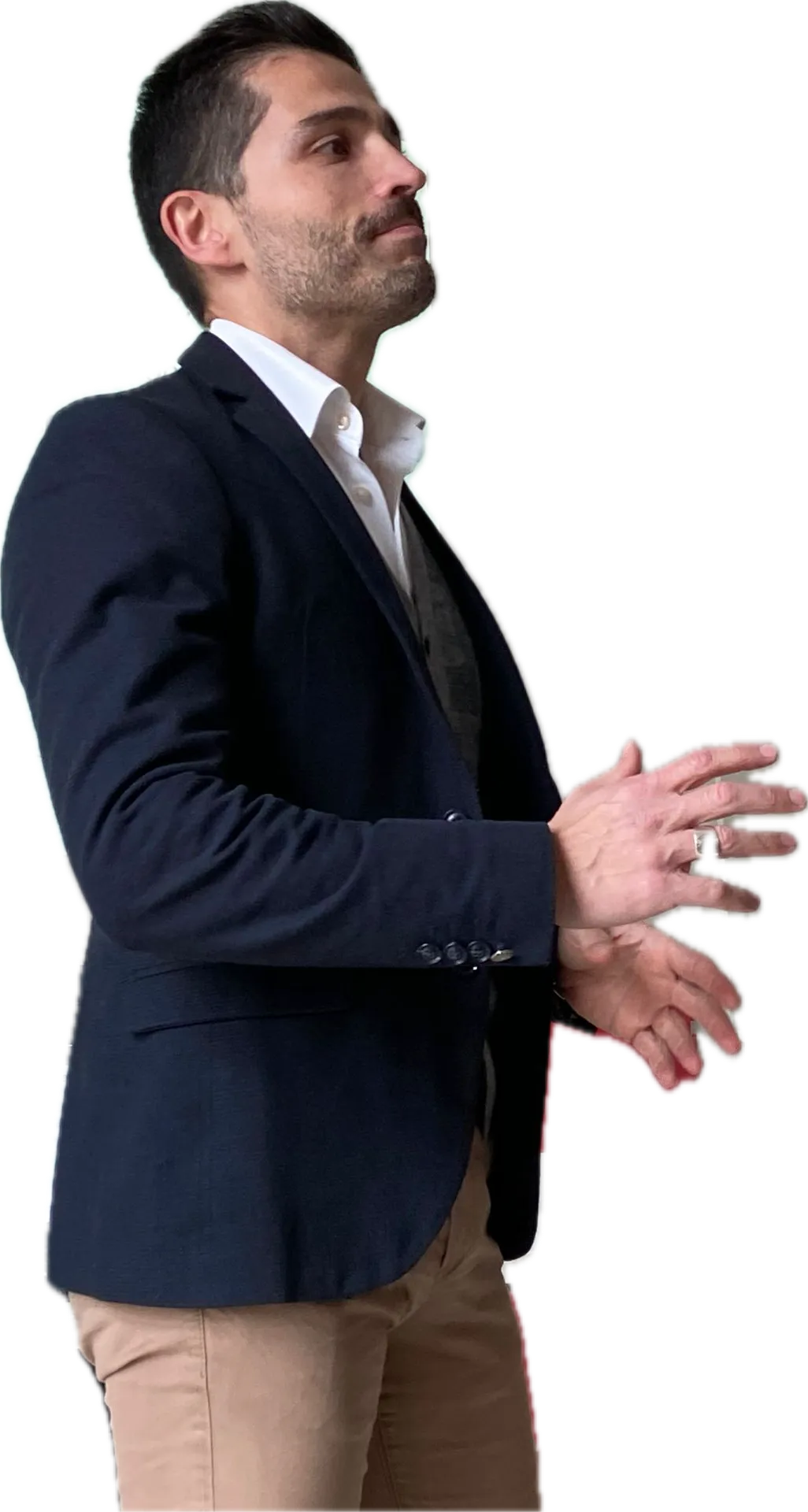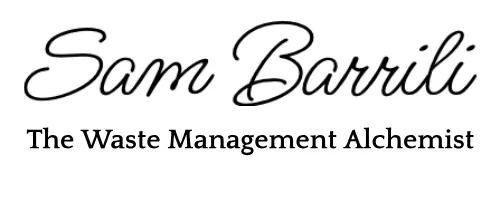Articles

Stop Losing Contracts: The Networking Formula That Builds Waste Management Empires
In my years of transforming waste management companies from underperforming businesses into profit powerhouses, I’ve discovered one truth that towers above all others: success is not about what you know—it’s about who you know and how well you know them. Your connections, your relationships, your network—these are the true engines of lasting success in any industry, but especially in waste management.
The waste management industry in the U.S. isn’t just about hauling trash, managing landfills, or running recycling facilities. It’s a high-stakes game of relationships. Contracts aren’t won because you have the cheapest bid; they’re won because of trust, rapport, and reliability. Opportunities don’t just land in your lap; they flow through your network. If you don’t have a strong web of connections, you’re leaving money on the table and leaving the future of your business to chance.
Let me show you why—and how—you should start focusing on building a bulletproof network to ensure your company thrives for decades.
[Discover The Centurion Waste Alliance]
Why Your Network is Your Greatest Asset
Some people think waste management is a “nuts and bolts” industry—trucks, bins, and big contracts. Sure, there’s a mechanical side to it, but behind the scenes, it’s relationships that determine who dominates and who struggles. The biggest players in this field, from Waste Management Inc. to Republic Services, didn’t just grow because they had the best trucks. They grew because they built deep, enduring connections across all aspects of the business.
Here’s why your network is critical in this industry:
1. Government and Municipal Contracts Are About Trust
The vast majority of waste management businesses rely on municipal contracts for steady cash flow. Cities don’t just hand these out to anyone who fills out a Request for Proposal (RFP). They award contracts to companies they trust—companies that have proven themselves reliable, professional, and consistent.
How do you build that trust? Relationships. By networking with city officials, attending local council meetings, and showing up at public works conferences, you put your company’s name in front of the decision-makers. Over time, you become a known quantity—a trusted partner instead of just another bidder.
2. Partnerships Keep the Wheels Turning
No waste management company operates in a vacuum. You need partnerships to run efficiently:
Material Recovery Facilities (MRFs): They depend on steady, predictable waste streams. If you’re known and trusted, they’ll prioritize your materials over others.
Recycling Buyers: Scrap metal dealers, plastic processors, and cardboard buyers need reliable suppliers. If you’ve built a strong connection, they’ll buy from you even when market prices fluctuate.
Specialized Disposal Facilities: For hazardous or e-waste, knowing the right people ensures you can provide your customers with solutions others can’t.
These partnerships are forged through years of networking, showing up, and consistently delivering value.
3. Market Intelligence Travels Through Relationships
Let me tell you something few people in this industry understand: the best opportunities are rarely advertised. Whether it’s a major municipal contract coming up for renewal or a smaller competitor looking to sell, the first people to know are those with strong connections.
I’ve seen companies skyrocket because the owner was dialed into the right circles, hearing about opportunities others missed. If you’re not part of the conversation, you’ll be left behind.
[Discover The Centurion Waste Alliance]
Building Your Network: The Right Way to Do It
Let me be clear—networking isn’t about handing out business cards at a trade show and hoping someone calls you. It’s not about superficial interactions or collecting LinkedIn connections like baseball cards. True networking is about building real, valuable relationships over time.
Here’s how to do it:
1. Be Strategic
Not all connections are created equal. In waste management, your network needs to include:
Decision-Makers: Municipal leaders, public works directors, and procurement officers who decide on contracts.
Industry Peers: Fellow waste haulers and facility operators who can collaborate on deals or pass along overflow work.
Vendors and Suppliers: Equipment providers, tech companies, and recycling facilities who can give you an edge.
Trade Associations: Groups like the National Waste & Recycling Association (NWRA) are filled with people who can open doors for you.
Focus on cultivating relationships with people who can directly or indirectly help you grow your business.
2. Add Value First
Here’s a networking secret that will set you apart: give before you take. Too many business owners approach relationships thinking, “What can this person do for me?” Flip that script. Offer help, insights, or introductions without expecting anything in return. When you become known as someone who provides value, people will naturally want to work with you.
For example, I’ve introduced smaller haulers to landfill managers I know, helped city officials understand cost-saving strategies, and connected peers with underutilized recycling markets. Those gestures have paid me back tenfold over the years.
3. Show Up Consistently
You can’t build a strong network sitting behind your desk. Attend conferences like WasteExpo, join mastermind groups like my Centurion Waste Alliance, and get involved in local trade events. The more visible you are, the more people will know your name—and associate it with value and expertise.
4. Leverage Technology
In today’s world, a lot of networking happens online. Use tools like LinkedIn to connect with industry leaders, stay updated on what’s happening, and engage with content that demonstrates your expertise. A well-crafted LinkedIn profile and regular engagement can position you as a go-to resource in your field.
[Discover The Centurion Waste Alliance]
Why Most Businesses Fail at Networking
Let me tell you why so many waste management companies struggle to build a lasting network—they approach it the wrong way. Here are the top mistakes I see:
Focusing Only on Immediate Gains If the only time you reach out to someone is when you need something, your relationships will be shallow and transactional. Instead, focus on building long-term connections that benefit both parties.
Failing to Follow Up Relationships aren’t built in one meeting. If you don’t follow up consistently, people will forget about you.
Neglecting Local Communities Some companies chase big national contracts but ignore the local decision-makers in their own backyard. Don’t make this mistake—your local network is often your most valuable.
Turning Connections Into Cash Flow
Building a strong network isn’t just about feeling well-connected—it’s about driving real results for your business. Here’s how a robust network translates into cash flow:
More Opportunities: You’ll hear about contracts, partnerships, and deals others don’t.
Better Margins: Strong relationships with suppliers and buyers mean better pricing and more favorable terms.
Resilience: When markets fluctuate or crises hit, your network will help you weather the storm.
Take it from me—connections are the ultimate competitive advantage in waste management. You can have the best trucks, the most efficient systems, and the lowest costs, but if you don’t have the right relationships, you’ll hit a ceiling. On the other hand, a strong network will take your business to levels you never imagined.
[Discover The Centurion Waste Alliance]
Ready to Build Your Network? Let’s Talk.
If you’re serious about building a lasting waste management business, you can’t afford to neglect your network. It’s not a “nice-to-have”—it’s a necessity. Whether you’re looking to secure bigger contracts, expand into new markets, or simply future-proof your business, the strength of your connections will determine your success.
That’s why I created the Centurion Waste Alliance—a mastermind group designed specifically for waste management professionals who want to grow their businesses through strategy, relationships, and expertise. If you’re ready to level up your network and your business, let’s connect.
Remember: the waste business isn’t about garbage—it’s about gold. And the key to finding that gold is in your network.
To Your Success,
Sam Barrili
The Waste Management Alchemist


Sam Barrili
I'm known as the go-to guy for talking about business strategies and growth strategies for waste management companies.
I started my journey in this field in 2009 when I finished my degree in Toxicological Chemistry and joined a wastewater treatment company to develop its market.
Since then, I helped dozens of waste management companies in America and Europe increase their annual profits by over 25 million dollars thanks to my SAM Method.
If you want to know if I'm a good fit for you, read an article or watch a video.
If you find it helpful, I’m probably a good match.
If not, that's OK too.
Call +1 (801) 804-5730
Email: [email protected]

